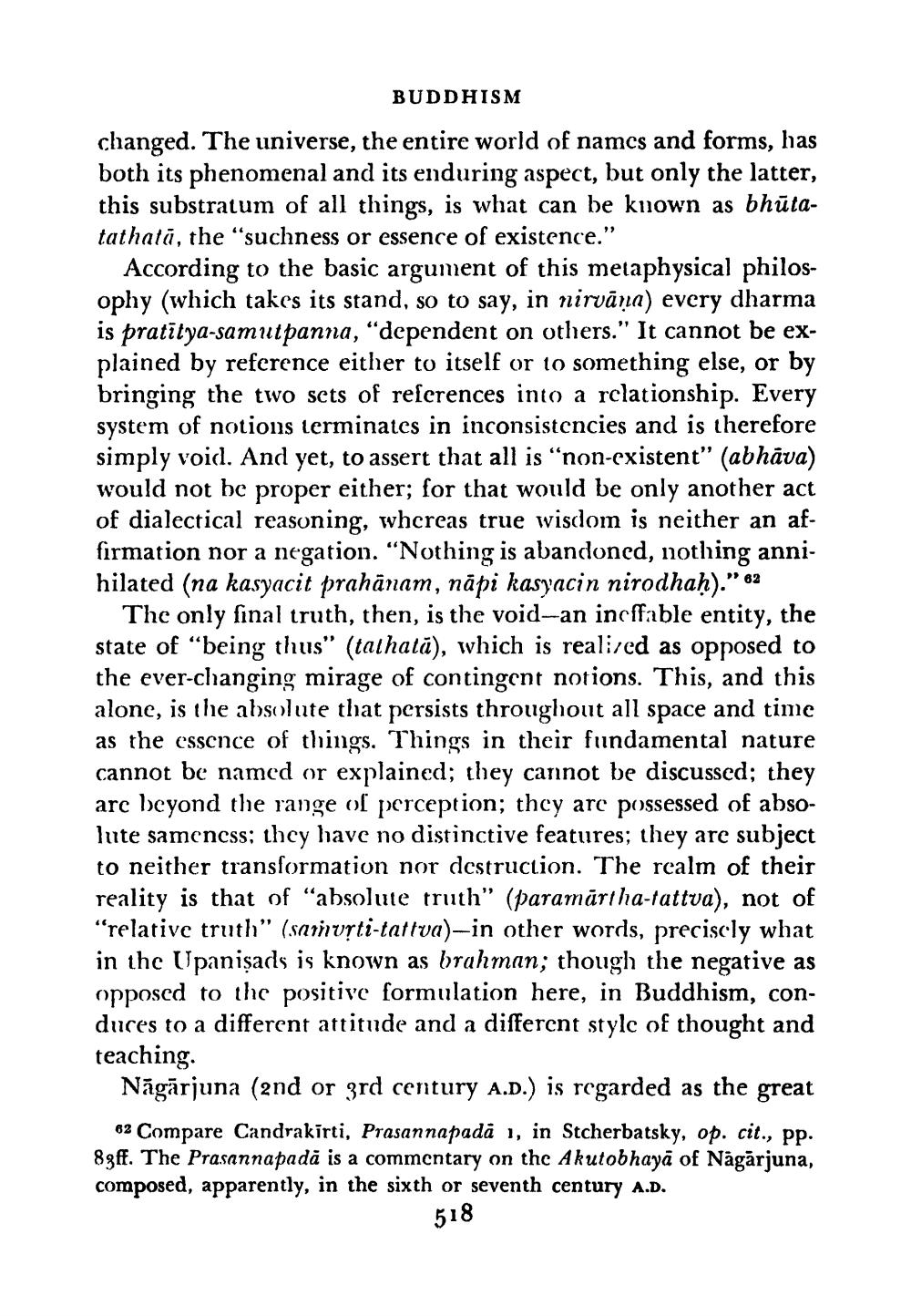________________
BUDDHISM
changed. The universe, the entire world of names and forms, has both its phenomenal and its enduring aspect, but only the latter, this substratum of all things, is what can be kuown as bhūtatathatā, the “suchness or essence of existence."
According to the basic argument of this metaphysical philosophy (which takes its stand, so to say, in nirvāņa) every dharma is pratītya-samutpanna, “dependent on others." It cannot be explained by reference either to itself or to something else, or by bringing the two sets of references into a relationship. Every system of notions terminatcs in inconsistencies and is therefore simply void. And yet, to assert that all is "non-existent” (abhāva) would not be proper either; for that would be only another act of dialectical reasoning, whcreas true wisdom is neither an affirmation nor a negation. “Nothing is abandoned, nothing annihilated (na kasyacit prahānam, näpi kasyacin nirodhah)." 62
The only final truth, then, is the void-an incffable entity, the state of "being thus" (talhată), which is realized as opposed to the ever-changing mirage of contingent notions. This, and this alone, is the absolute that persists throughout all space and time as the essence of things. Things in their fundamental nature cannot be named or explained; they cannot be discussed; they arc beyond the range of perception; they are possessed of absolute samencss; they have no distinctive features; they are subject to neither transformation nor destruction. The realm of their reality is that of "absolute truth" (paramārtha-tattva), not of “relative truth" (sarvīti-tattva)-in other words, precisсly what in the Upanișads is known as brahman; though the negative as opposed to the positive formulation here, in Buddhism, conduces to a different attitude and a different style of thought and teaching
Nāgārjuna (2nd or 3rd century A.D.) is regarded as the great
62 Compare Candrakirti, Prasannapadā 1, in Stcherbatsky, op. cit., pp. 83ff. The Prasannapada is a commentary on the Akutobhayā of Nagarjuna, composed, apparently, in the sixth or seventh century A.D.
518




